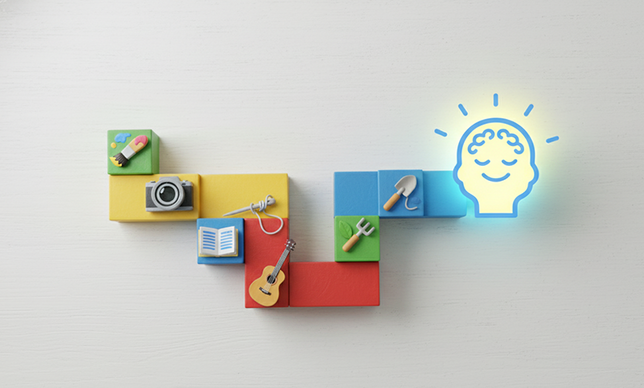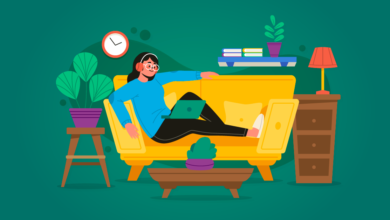How Hobbies Improve Mental Health and Focus

Ever feel like your brain is running a million miles an hour, but you’re not actually getting anywhere? In our non-stop world, it’s easy to get caught up in the daily grind, leaving us feeling overwhelmed, stressed, and scattered. We’re constantly bombarded with tasks, deadlines, and digital distractions, which can take a serious toll on our mental well-being and ability to concentrate.
But what if there was a simple, enjoyable way to hit the reset button? Enter hobbies! More than just a way to pass the time, hobbies are powerful tools that can significantly improve your mental health and sharpen your focus. They offer a much-needed escape, a chance to nurture your inner self, and a pathway to a more balanced life. Let’s dive into how dedicating time to something you love can profoundly benefit your mind.
The Power of Play: How Hobbies Transform Your Mind
1. Stress Relief and Relaxation: Your Mental Escape Route
One of the most immediate benefits of engaging in a hobby is its incredible ability to melt away stress. When you’re engrossed in an activity you enjoy, your mind shifts away from worries and anxieties. Think about it: whether you’re gardening, knitting, painting, or playing an instrument, you’re fully present in that moment, giving your brain a much-needed break from everyday pressures.
This “flow state” can lower your heart rate and blood pressure, acting like a natural de-stressor. It’s like hitting a mental reset button, allowing you to return to your responsibilities feeling refreshed and calm. Hobbies offer a healthy, productive way to relax and unwind.
2. Sharpen Your Focus and Concentration
Many hobbies require a certain level of concentration and problem-solving, which is fantastic for your brain. Activities like playing chess, learning a new language, or even intricate model building demand your attention and help you practice sustained focus. You’re training your brain to block out distractions and zero in on the task at hand.
Regularly engaging in these focused activities can improve your overall cognitive function and attention span. You’ll find it easier to concentrate at work or during other daily tasks because you’ve been giving your brain a regular “focus workout.”
3. Boosts Creativity and Self-Expression
Hobbies provide an incredible outlet for your innate creativity, even if you don’t consider yourself an “artist.” Whether it’s cooking a new recipe, writing short stories, or tinkering with electronics, you’re exploring new ideas and expressing yourself in unique ways. This kind of self-expression is vital for emotional well-being.
Dabbling in creative hobbies helps you think outside the box and can even spill over into other areas of your life, making you more innovative in your professional or personal problem-solving. It’s incredibly empowering to create something new and uniquely yours.
4. Fosters Social Connection and Belonging
While some hobbies are solitary, many offer fantastic opportunities for social interaction. Joining a book club, a hiking group, a crafting circle, or a local sports team can combat feelings of loneliness and isolation. Connecting with like-minded individuals who share your passion creates a sense of community and belonging.
These social bonds are incredibly important for mental health. Sharing experiences, learning from others, and having a supportive network can significantly reduce stress and enhance your overall happiness. Plus, it’s just plain fun to share your enthusiasm!
5. Builds Self-Esteem and a Sense of Accomplishment
There’s a deep satisfaction that comes from mastering a new skill or completing a project. When you dedicate time and effort to a hobby, you start seeing tangible results of your hard work. Whether it’s finally playing that guitar chord, finishing a complex puzzle, or growing your own vegetables, these small victories build significant self-esteem.
This sense of accomplishment translates into increased confidence in other areas of your life. You realize you’re capable of learning, growing, and achieving, which is a powerful boost for your mental well-being and personal growth.
Choosing Your Perfect Pastime: Hobbies for Every Need
Not sure where to start? Don’t worry! The best hobby is one that truly excites you and feels like a joy, not another chore. Think about what brings you peace, makes you curious, or simply makes you smile. Here’s a little guide to get you thinking:
| Primary Mental Benefit | Example Hobbies | Why It Helps |
|---|---|---|
| Stress & Relaxation | Gardening, knitting, reading, mindful walking, coloring | Engages senses, repetitive motions, and provides a calming mental escape. |
| Focus & Cognitive Boost | Puzzles, learning an instrument, coding, chess, and photography | Requires sustained attention, problem-solving, and critical thinking. |
| Creativity & Expression | Painting, writing, cooking, pottery, crafting, playing music | Allows for emotional release, self-discovery, and innovative thought. |
| Social Connection | Book clubs, team sports, dance classes, volunteer work, gaming groups | Fosters community, reduces loneliness, and builds supportive relationships. |
| Self-Esteem & Accomplishment | Building models, learning a new language, fitness goals, DIY projects | Provides tangible progress, mastery of skills, and a sense of pride. |
Conclusion
It’s clear that hobbies are much more than just time-fillers; they’re essential investments in your mental health and overall well-being. They offer a sanctuary from the demands of modern life, helping you de-stress, sharpen your mind, express yourself, connect with others, and build confidence. You don’t need to be an expert; the goal is simply to enjoy the process and the benefits it brings.
So, what are you waiting for? Take a moment to think about what sparks your interest. Whether it’s dusting off that old guitar or trying a completely new craft, dedicating even a little time to a hobby can significantly enhance your quality of life. Give yourself the gift of a hobby – your mind will thank you!





